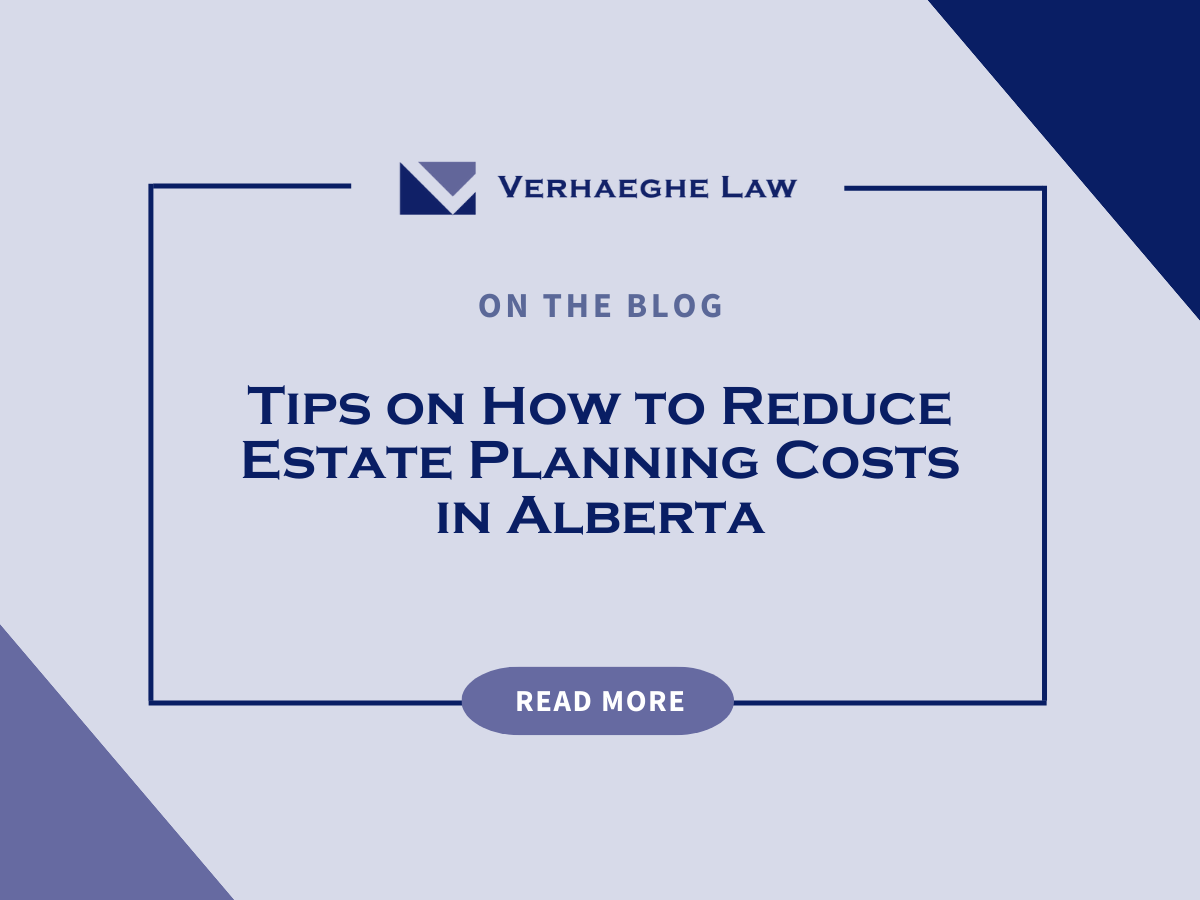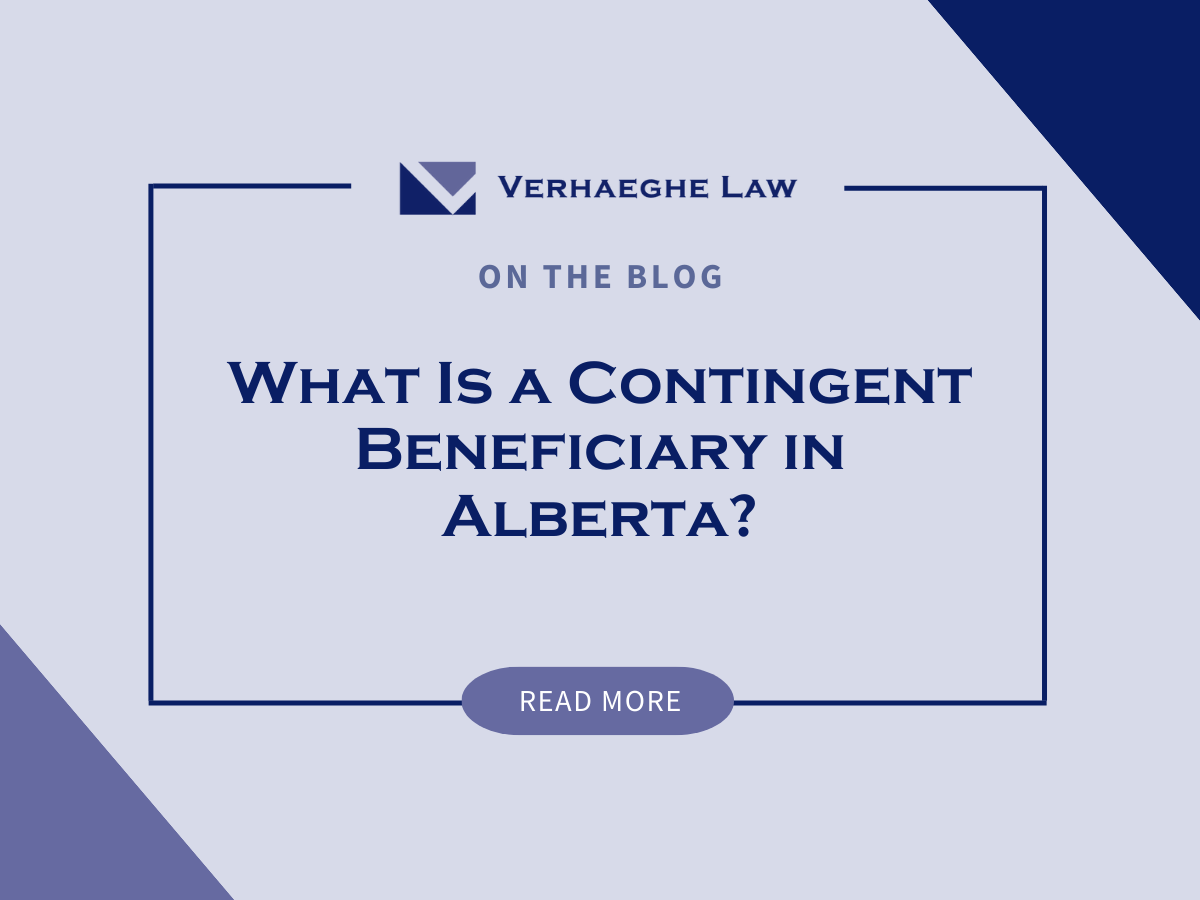Tips on How to Reduce Estate Planning Costs in Alberta

Estate planning is the process of making arrangements for how your assets and obligations will be distributed after your death. It involves articulating your wishes in an important document known as the last will and testament. Having a will can help ensure you leave your loved ones with financial security as well as clear guidance as to your legacy.
Other estate planning considerations can include naming a personal directive and power of attorney, establishing a trust, and possibly more. The estate planning process comes with costs, which vary depending on a number of factors. There are steps you may be able to take in structuring your estate to reduce estate planning costs in Alberta, both for yourself and your loved ones.
Our Edmonton estate administration lawyers would be happy to discuss your questions and concerns, and see how we might help you structure a cost-effective estate plan.
The Costs of Estate Planning
In Alberta, numerous factors contribute to the costs of estate planning and administration. These can include:
- Probate
- Administrative fees
- Executor compensation
- Taxes
- Legal fees
- And more
Your executor - the person you designate to oversee your estate after your death - will typically need to put the will through probate. This is a process by which the will is reviewed and deemed valid, thereby giving the executor the power they need to distribute your estate. Probate fees are set on a scale commensurate with the value of the estate.
The executor typically receives compensation for their labour in administering the estate. Other administrative fees, such as preparing particular documents, may also add up.
Another major consideration for the planning of your estate in Alberta is the impact of taxes on your beneficiaries. If the sale of your estate assets accrues capital gains, for example, these will be taxed. Likewise, if you have had deferred taxes, such as through a retirement account, these may become your beneficiaries’ responsibility once your assets are liquidated.
With the assistance of our Edmonton estate administration lawyers, you may be able to make informed choices to mitigate the costs associated with planning your estate.
Planning Ahead: Your Last Will and Testament
Having a last will and testament in place is one of the most important things you can do to reduce your loved ones’ stress after you pass away. If you die without a will, known as dying intestate, your assets will be distributed according to the provisions in Alberta’s estate administration act, which may mean your heirs need to pursue costly litigation in order to access your assets.
Planning with your beneficiaries in mind may include setting up a trust for loved ones who might be under the age of 18 when you pass away. This can ensure their inheritance is safely held until a time of your choosing - perhaps once they reach the age of majority.
To learn more about what you may need for a last will and testament, and to address your questions on what are the various types of trusts available for estate planning purposes in Alberta, contact our Edmonton estate administration lawyers today.
Considerations for Strategic Tax Planning
If you wish to reduce the taxes that may possibly affect your beneficiaries in the estate administration process, you may be able to do so by making particular choices to structure your estate.
Your will may, for example, provide for a charitable donation to be made by your estate. Taxes on capital gains may also be reduced by strategizing the timing of an asset’s sale.
During your lifetime, you may wish to make certain arrangements to streamline the inheritance process on major assets. For example, if you share property with a spouse, you may wish to establish a joint tenancy. That way, when you pass away, your spouse will automatically retain ownership of the property, with no need for probate, through right of survivorship.
Contact Our Edmonton Estate Administration Lawyers Today for a Consultation
Planning for the future of an estate can be a challenging process, and unexpected expenses can make it financially stressful. Our Edmonton estate administration lawyers are here to help address your questions and concerns at any step of the process. Contact us today to book a consultation and learn how we may be able to help.
** Please note, this article is intended as a general overview on the subject of estate administration law, and is not intended to be legal advice. If you are seeking legal advice, please consult with an Alberta estate administration lawyer.



